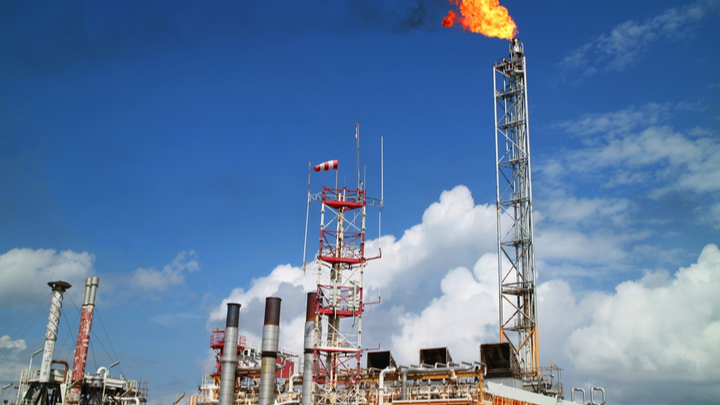ExxonMobil sets methane reduction targets

EXXONMOBIL has announced plans to cut methane emissions by 15% and reduce flaring by 25% by 2020.
Methane is a greenhouse gas that is the primary component of natural gas. Methane can leak when gas is extracted and transported, and the surge in natural gas production in recent years has led to increased methane emissions. ExxonMobil has committed to reducing its methane emissions by 15% by 2020. It also intends to reduce flaring by 25%, concentrating on regions in West Africa. Both cuts are in comparison to 2016 levels. The company has already reduced its methane emissions by 2% in the last year by detecting and repairing leaks in the US.
“We have a longstanding commitment to improve efficiency and mitigate greenhouse gas emissions,” said ExxonMobil CEO Darren Woods in a statement. “Today’s announcement builds on that commitment and will help further drive improvements in our business.”
The move comes ahead of its annual meeting on 30 May and follows pressure from investors to take action on reducing emissions linked to global warming.
BP also responded to pressure from investors in April when it announced that it intends to keep its greenhouse gas emissions at its 2015 level of 51.2 m t of CO2 up to 2025, despite plans to grow production by 900,000 bbl/d. This sets a target of cutting 3.5m t of greenhouse gases, including methane, over the period.
Shell was also under pressure from investors to go beyond its previously stated emission reduction targets in order to bring them into line with the Paris Agreement, but the company defeated the motion at its annual meeting on 22 May.
Matt Watson, Environmental Defense Fund’s associate vice president for climate and energy, said: “ExxonMobil’s methane commitment is an important and welcomed step, but greater ambition will be required. In a carbon-constrained world, oil and gas industry leaders should seek to virtually eliminate emissions of this highly-potent greenhouse gas.”
A recent report by the International Energy Agency found that global oil and gas methane emissions could be reduced by up to 75% using current technology.
Recent Editions
Catch up on the latest news, views and jobs from The Chemical Engineer. Below are the four latest issues. View a wider selection of the archive from within the Magazine section of this site.




